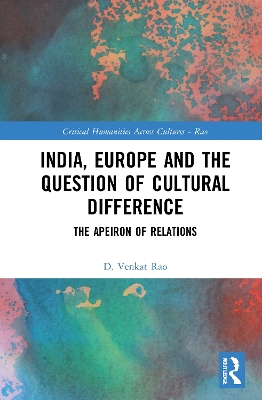Critical Humanities Across Cultures
1 total work
This volume critically engages with the question of cultural difference and the idea of living with diversity in the context of India and Europe. It looks at certain essential European categories of learning such as art, nature, the human, literature, relation, philosophy, and the humanities and analyses texts from Sanskrit language (through Telugu resources) to argue that categories like prakriti, loka, jati, dharma, karma, sahitya, kala,etc. cannot be conflated with conceptual formations such as nature, world, caste, religion, (sanctioned) action, literature and art respectively. The book questions and unravels the efficacy of European concepts, theories and interpretive frames in understanding Indian reflective traditions and cultural forms. It also lays the groundwork for reorienting teaching and research in universities in the humanities on the basis of key cultural differences. By focusing on major themes in the humanities discourse and their limitations, the work engages with the writings of Heidegger, Derrida and Agamben, among others, from radically new vantage points of Sanskrit-Indian reflective traditions, and challenges prevailing ideas about Indian art, literature and culture.
Part of the Critical Humanities Across Cultures series, this book will be an essential read for scholars and researchers of Indian languages and literature, comparative literature, art and aesthetics, postcolonial studies, cultural and heritage studies, philosophy, political philosophy, comparative philosophy, Sanskrit studies, India studies, South Asian studies, Global South studies, and for those working on education in the humanities/human sciences.
